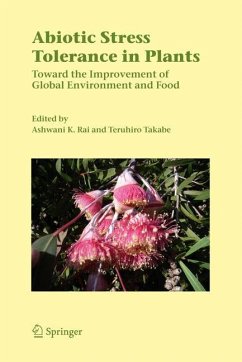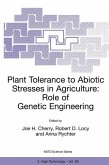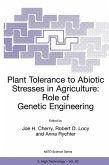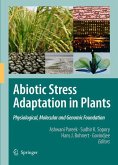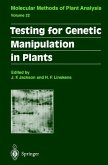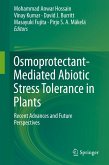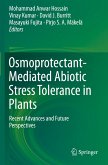Stresses in plants caused by salt, drought, temperature, oxygen, and toxic compounds are the principal reason for reduction in crop yield. For example, high salinity in soils accounts for large decline in the yield of a wide variety of crops world over; ~1000 million ha of land is affected by soil salinity. Increased sunlight leads to the generation of reactive oxygen species, which damage the plant cells. The threat of global environment change makes it increasingly demanding to generate crop plants that could withstand such harsh conditions. Much progress has been made in the identification and characterization of the mechanisms that allow plants to tolerate abiotic stresses. The understanding of metabolic fluxes and the main constraints responsible for the production of compatible solutes and the identification of many transporters, collectively open the possibility of genetic engineering in crop plants with the concomitant improved stress tolerance. Abiotic Stress Tolerance in Plants is a new book with focus on how plants adapt to abiotic stress and how genetic engineering could improve the global environment and food supply. Especially, the application of biotechnology in Asia and Africa would be important. Environmental stress impact is not only on current crop species, but is also the paramount barrier to the introduction of crop plants into areas not currently being used for agriculture. Stresses are likely to enhance the severity of problems to be faced by plants in the near future.
From the reviews: "This textbook aims to present a state of the art description of the physiological, biochemical and molecular status of the understanding of abiotic stress in plants and the application of biotechnology to crop and environmental improvement. ... could serve postgraduates, academics and researchers alike as a reference to the current state of ... the research in the field of abiotic stress of plants." (Mick Fuller, Experimental Agriculture, Vol. 43, 2007)

